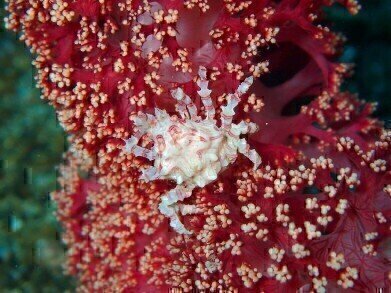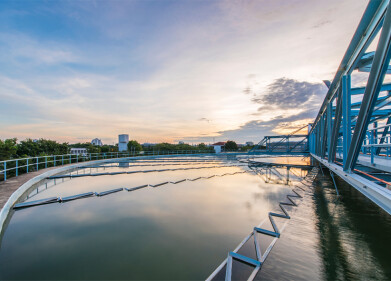Water/Wastewater
Can Crabs Help Coral Reefs?
Jan 22 2021
Coral reefs have had a challenging few years. Their very survival has come under attack by a myriad of threats, including rising oceanic temperatures, plastic pollution and the eutrophication of their waters by agricultural run-off. This latter phenomenon has proven to be particularly troublesome, since the high levels of phosphate found in surface water not only contribute to the decline of the coral, but also promote the propagation of seaweed.
While seaweed doesn’t seem like a dangerous prospect on its own, it can smother the coral in large numbers when thriving among nutrient-rich waters. This all but negates the possibility of the reef ever experiencing a resurgence, which is why the scientific community has been searching for a solution to the conundrum. Thanks to the work of two researchers from Florida International University (FIU), they may just have found one in an unlikely form: crabs.
How to solve a problem like seaweed
Intensive farming of land in coastal areas can often lead to excess phosphate and nitrogen being washed into rivers, streams and shorelines. This can cause significant damage to coral reefs, all the while providing a nutritional boost to other types of flora and fauna such as seaweed. In that scenario, the reefs suffer the double blow of being overwhelmed by eutrophication, then blanketed by seaweed.
There are several fish species which subsist on seaweed and in fact, coral reefs have been found to release certain chemicals that attract these seaweed-eating species, as a sort of chemical distress call. Unfortunately, there are simply not enough of the fish in question to handle the rapid growth of the seaweed, especially since another of its predators – the sea urchin – has been all but eradicated in Floridan waters due to an unknown disease.
Crabs to the rescue!
Caribbean king crabs could hold the answer to that riddle. As well as consuming a large amount of the seaweed present around the Florida Keys, this crab species is also capable of ingesting particular types of the harmful plant which other animals find poisonous. However, the current status quo has seen a high number of juvenile Caribbean king crabs fall prey to other species, meaning there are just not enough of them to go around at the moment.
Keen to investigate what would happen if crabs were capable of consuming the seaweed in larger numbers, the FIU researchers artificially boosted their ranks by transplanting crabs from other areas to reefs that were overrun by seaweed. Thanks to continuous online water monitoring over a number of years, they were able to produce results that were, quite simply, stunning.
Promising conclusions
The duo found that the boosted crab numbers were capable of bringing down seaweed coverage from 85% at the outset of the experiment to less than half by its end. In areas where some seaweed had already been removed manually before the crabs were released, the coverage fell by as much as 80%. It’s not as though the seaweed simply migrated to other areas, either; in control reefs where crab numbers were low, seaweed coverage remained constant.
Of course, removing the seaweed alone would not achieve anything of import if the corals were not able to recover after the fact. However, the researchers returned to the site of their experiment two years later and discovered that both coral and fish were up to five times more commonplace on the crab-infested reefs as they were on those abandoned to the seaweed.
Digital Edition
IET 34.2 March 2024
March 2024
Gas Detection - Biogas batch fermentation system for laboratory use with automatic gas analysis in real time Water/Wastewater - Upcycling sensors for sustainable nature management - Prist...
View all digital editions
Events
Apr 17 2024 Guadalajara, Nexico
Apr 18 2024 Shanghai, China
Apr 22 2024 Hannover, Germany
Apr 22 2024 Marrakech, Morroco
Apr 23 2024 Kuala Lumpur, Malaysia


















